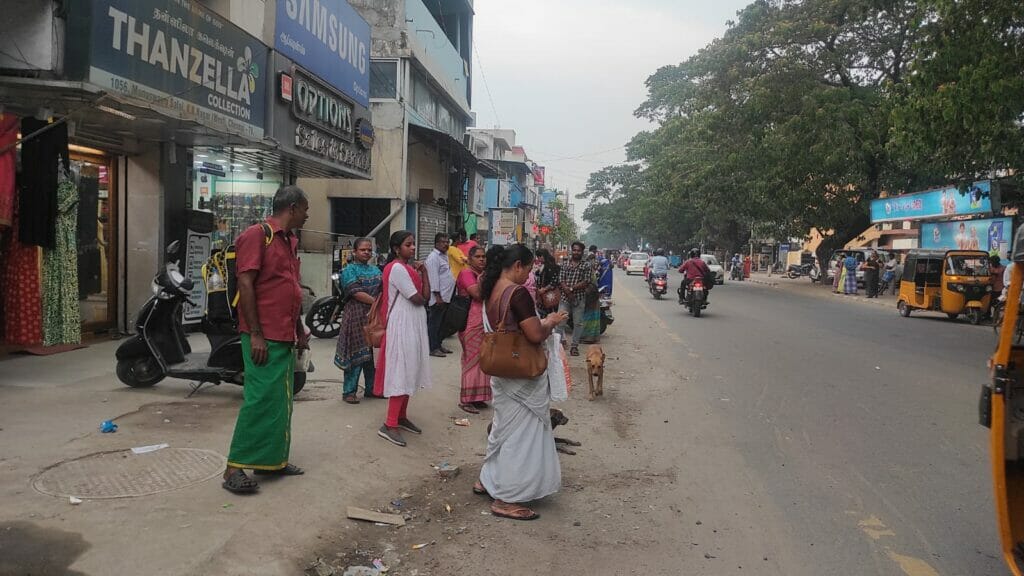“I would like to go to a police station to file a complaint supporting a 60-year-old woman who is abused by her husband without being told by the police, ‘You are already 60 years old. Why would you want to make a complaint against him now and file for a divorce?’ I would like to walk into a police station and sit as I please without being lectured by any police personnel that I should not sit cross-legged as it is disrespectful,” says Archana, a Chennai-based activist. while speaking about the safety of women in public spaces at the Gender and Policy Lab’s Annual Report Launch.
“I would like to be in government hospitals where women can access contraception or pregnancy termination services without being bullied for it by the hospital staff. I would like to be in government hospitals where women are treated with respect and dignity when they are going through labour pain,” she adds as she illustrates how the government hospital staff often ill-treat poor patients.
Often, when we speak about the safety of women in public spaces, we speak about streets, parks and public transport. However, we tend to overlook the fact that the government institutions themselves are public spaces. Many women from different walks of life access these institutions including the police stations, government hospitals and other government offices regularly. “These places continue to be hostile towards women. When we prepare a vision for Chennai, it is important to consider the government institutions as public spaces and ensure these places are also safe for women to access. It is especially important to ensure that women going to government hospitals and police stations are treated with respect and dignity,” says Archana.
The Gender and Policy Lab (GPL), housed within the Greater Chennai Corporation, released its annual report on November 9 during which the findings from the perception study conducted by GPL were shared with the audience.
Read more: Seven long hours in Chennai police stations to file a sexual harassment complaint
Statistics on women’s safety in Chennai
The perception study covered a sample of 3,000 persons in Chennai. For this, a total of 1402 women, 565 men and 100 transgenders were interviewed at the household level and 1030 women at public places (local streets, popular markets, religious places, parks, beaches, near educational institutions) and transport junctions (bus stops, auto stands, metro stations and suburban railways).
According to the study, 53% of women, 43% of men and 29% of transgender persons rated Chennai as safe. Similarly, 95% of men and 78% of women did not think that the city was high in crimes against women. However, 52% of transgender persons felt that the crimes against them were high in Chennai.

The data on the experience of sexual harassment in public spaces and public transport reads that a total of 12-22% of the responding women mentioned having faced some form of harassment in public spaces and public transport. “However, we believe that the figures might be higher because women were more forthcoming in sharing about harassment experiences in focus group discussions,” says the report by GPL.
Further, the data on the intervention by bystanders points out that 62% of the women who experienced harassment said that no one intervened. Whenever there was any intervention, 45% of women said it was from the police and only 38% said it was from known people or strangers.
Read more: Women of Chennai speak up through the work of the Gender and Policy Lab
Response of men to harassment of women in public spaces
The interesting part of the data was the response of men and the bystanders to harassment of women in public spaces and public transport. About 43% of men mentioned witnessing sexual harassment of women in public places in the last three months. 18% of men reported they did not do anything even when the victim was known to them whereas 14% of men reported the same when the victim was a stranger.
Around one-fourth of the men who did not intervene mentioned the hassle of dealing with the system or authorities (29%) and fear of getting attacked (25%) as the main reasons and 20% said they did not intervene because they felt it was on account of the women’s clothes or behaviour.
Working towards a safe and inclusive Chennai for women and other vulnerable groups
The GPL will be using these findings to make recommendations to various government bodies like CUMTA, CMDA, police department and so on. Meanwhile, it is also important to understand there is a dire need for change in social attitudes towards the perception of the safety of women and other vulnerable groups in public spaces.
Sharing her dream for a Chennai where women’s safety is ensured, Dharani, a school student from North Chennai says, “I want to be able to walk peacefully on the street and spend a night at a beach without any fear.” The data indicate that we have a long way before providing a safe street and a night at the beach for children like Dharani.
Isn’t that the bare minimum we can give to the future generation?